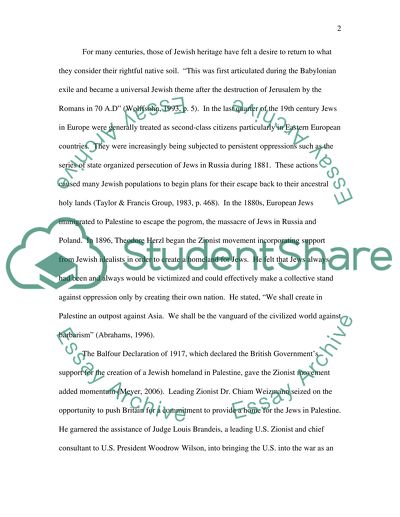Cite this document
(The Creation of Israel Essay Example | Topics and Well Written Essays - 2250 words, n.d.)
The Creation of Israel Essay Example | Topics and Well Written Essays - 2250 words. https://studentshare.org/history/1536490-creation-of-israel
The Creation of Israel Essay Example | Topics and Well Written Essays - 2250 words. https://studentshare.org/history/1536490-creation-of-israel
(The Creation of Israel Essay Example | Topics and Well Written Essays - 2250 Words)
The Creation of Israel Essay Example | Topics and Well Written Essays - 2250 Words. https://studentshare.org/history/1536490-creation-of-israel.
The Creation of Israel Essay Example | Topics and Well Written Essays - 2250 Words. https://studentshare.org/history/1536490-creation-of-israel.
“The Creation of Israel Essay Example | Topics and Well Written Essays - 2250 Words”. https://studentshare.org/history/1536490-creation-of-israel.


